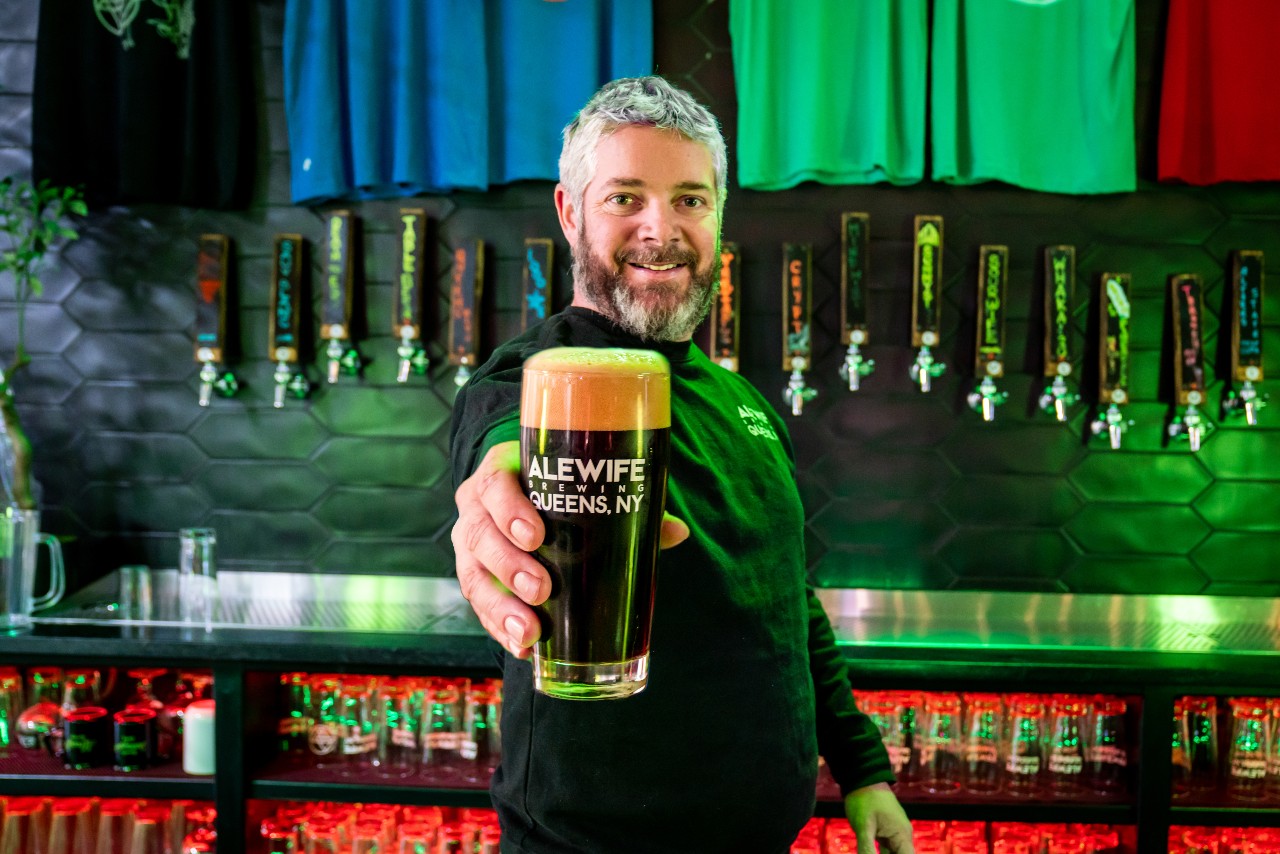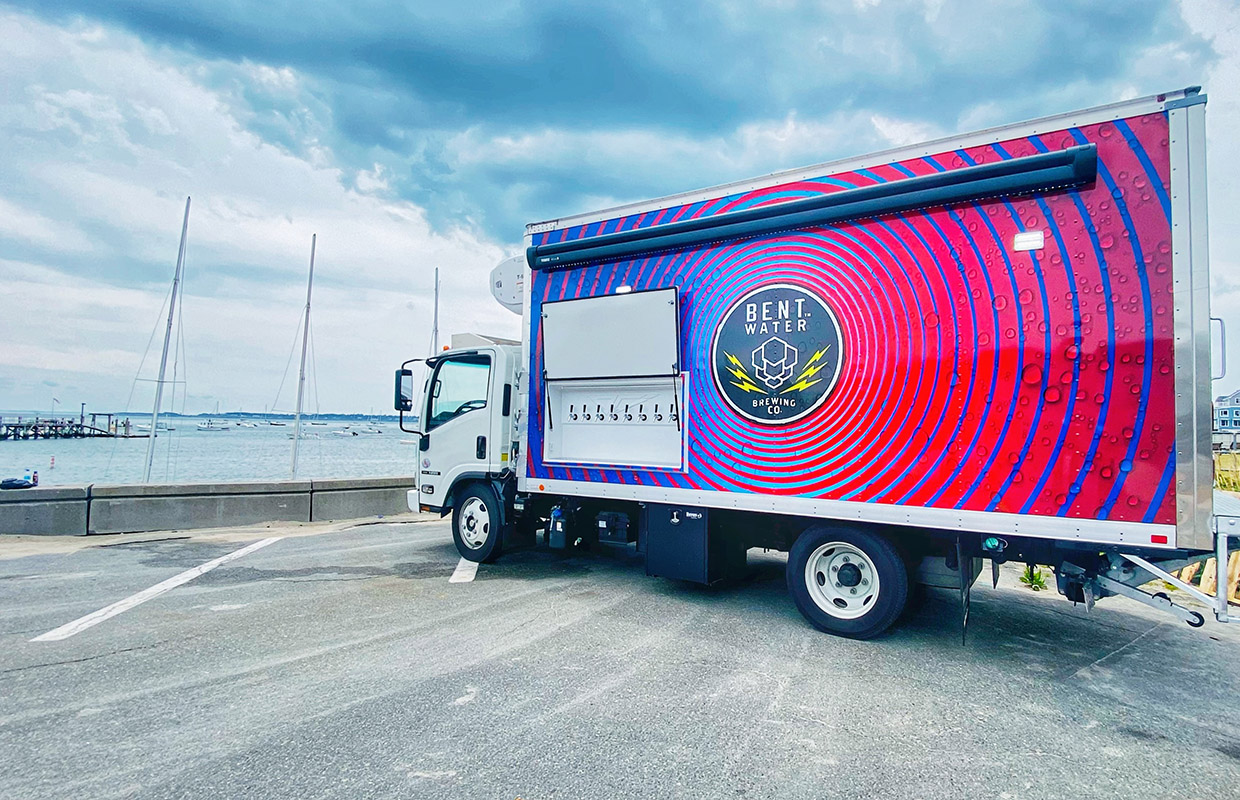
Alewife Brewing opened the doors to its physical location in Queens, New York in 2021 and is already producing 3,500 barrels with distribution in New York City, New York State and Pennsylvania.
Owner and Co-founder Patrick Donagher will proudly tell you they’re accomplishing that feat with a skeleton crew — just four on the brewing team, four on the sales team and three working the taproom.
“We’ve been growing bit by bit,” said Donagher, who operated a number of craft beer bars in New York City before ultimately deciding to start a brewery in Queens, where he first lived after emigrating from Ireland. “We’re not rushing beers out and we’ve kept a small team. We like the idea of growing organically.”
A few factors have contributed to Alewife’s ability to stay on schedule with a small team, including careful hiring, blending self distribution and working with a distributor, and carefully managing the production schedule.
Donagher’s long-standing dream was to own and operate an immigrant-run NYC brewery.
While he and his wife are from Ireland and all members of the brewing team are Latino (Chris Mercedes, Fernando Carrasco, and Juliana Castro — a Siebel Educated Master Brewer), he focused on DEI hiring while also hiring experienced professionals best suited to run his brewery.
“When we post an ad we try to get the best qualified professionals, but with me being an immigrant and my cofounder (Keir Hamilton) being from Scotland, it’s just something we want to do to give people a chance,” Donagher said. “We have people get their visas and make a footing in America. It’s really hard to leave home and leave your country, and that’s something we wanted to do.”
Queens is notably the most diverse borough in the city, Donagher said, although he noted that his staff hail from all over.
“We have people working here from every borough except Staten Island,” he said.
Alewife’s beers are self-distributed in New York and the company works with a distributor to sell its products in Pennsylvania.
Making sure the staff is cross trained has been a key to keeping things running on schedule.
“We schedule our brew days, fermentation days and packaging days carefully,” Donagher noted. “If it’s a brew day, we’ve got one on deck and the other two are doing packaging. When its kegging, any one of us can do it, and that’s our job for two days — just kegging.
“The most important thing here is that everybody knows each other’s job.”




Be the first to comment